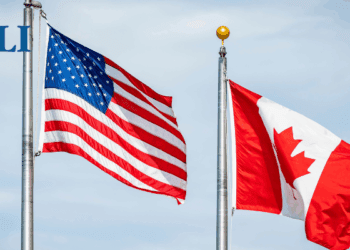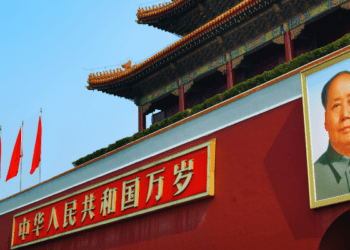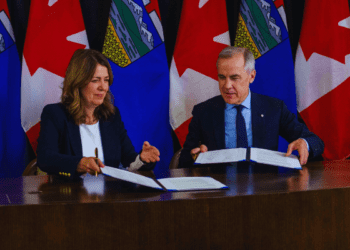December 18, 2012 – In the Financial Post today, Jack Mintz, Palmer Chair at the University of Calgary, writes about new taxation powers at the municipal level and references the latest op-ed by MLI’s Philip Cross on city spending. Mintz writes, “As Philip Cross of the Macdonald-Laurier Institute discussed on this page last week, deficits will constrain federal and provincial transfers for local governments in the coming years. This need not be a bad thing if it lessens local government dependency and improves political accountability.”
Click here to read, “Tough financial choices lie ahead for Canadian cities,” by Philip Cross. To read Jack Mintz’s Financial Post op-ed, see below.
Jack Mintz: Time to rethink urban tax taboo
By Jack Mintz, Financial Post, December 18, 2012
New taxation powers at municipal level would require cities to seek funds from their own voters
Economists know if you have a free good, consumption can almost be insatiable. Such is the case for Canada’s municipal mayors’ latest plea for infrastructure spending by federal and provincial governments. The mayors don’t want to raise taxes or tolls on their own residents. Instead, they propose that some other level of government pay the tab for their spending dreams.
Despite the large increases in provincial and municipal infrastructure spending in the past eight years, the mayors continue to ramp up their demands as we approach federal and provincial budget season.
As creatures of the provinces, municipalities are truly dependent on transfers from other levels of government. In 2011, local government income totalled $136.9-billion, which was 20.8% of consolidated all government income. However, transfers made up 42.7% of local government income with the balance raised by taxes (39.3%), sales of goods and services including user fees (13.9%) and other income (4.1%).
This pattern is not really different from earlier years except that local governments were somewhat less dependent on transfers from other governments. For example, in 2000, local government revenues totalled $78.7-billion or 16.7% of consolidated all government income. Transfers from other levels of government were $31.4-billion or 39.9% of local government revenues.
This increased dependency of local governments on upper levels of governments has arisen for two reasons. The first is a newly accepted but ill-thought role of the federal government in providing transfers to local governments, such as the gas tax that started under Paul Martin’s regime as prime minister. The second has been the sharp growth in infrastructure spending by the federal and provincial governments.
Prior to 2004, the federal government spent little on provincial, territorial and municipal infrastructure, less than $1-billion per year. This climbed to over $8-billion by 2010. Provincial infrastructure spending has also ramped up, reaching $18-billion in 2010 (from about $8-billion in constant dollars in 2000). Meanwhile, the transfer-dependent municipalities increased their spending on infrastructure to $9-billion in 2010 from about $3-billion (constant dollars) in 2000.
Thus, federal and provincial governments today pay for roughly three-quarters of provincial and local government infrastructure spending on bridges, roads, water, transit, and cultural and recreational facilities. This infrastructure spending has led to some good results — the average age of core public infrastructure has dropped to close to 14 years, well below the average age of 15.4 during the period 1961-2010 and the peak of 17 years in 2001.
Yet, the demands for more infrastructure spending continue unabated as political accountability for infrastructure spending is loosened by federal intrusion in provincial and local politics. Like health care, voters are increasingly confused as to which level of government is responsible for infrastructure spending. The provinces tell the mayors to take a flight to Ottawa to complain there. The federal government, facing its own deficit and cost-cutting measures, wonders how well money is spent at home.
If each dollar that local politicians spend on infrastructure is covered by 25¢ of local taxes, the political price of local government infrastructure initiatives is far less than the cost of other local services. I now understand why my own city, Calgary, is busy spending money on an unneeded “footbridge to nowhere” and “art work” instead of basics such as snow clearance which, despite recent improvements, appears to lag other cities, based on my travels across Canada.
As Philip Cross of the Macdonald-Laurier Institute discussed on this page last week, deficits will constrain federal and provincial transfers for local governments in the coming years. This need not be a bad thing if it lessens local government dependency and improves political accountability.
With the growth of large cities to the detriment of rural areas, it is time to rethink some of the taboos that undermine good political choices at the local level. Three particular changes could do a lot to improve accountability and municipal infrastructure spending.
The federal government should vacate altogether municipal funding programs, except for grants in lieu of property taxes on federal property. Instead, the federal government should focus on national infrastructure needs (such as ports, border bridges and interprovincial infrastructure). The issues surrounding local spending should rest with the provinces, which are ultimately responsible for municipal responsibilities and financing, in accordance with Canada’s constitution.
The provinces should look carefully at their provincial and municipal capital-spending plans to ensure that adequate resources are provided to fund both capital and operating expenses. Many provinces have separated capital and operating budgets — they expand capital budgets for hospitals, schools and municipal needs without providing adequate funding to hire doctors, nurses, teachers and other operating expenses once the new capital is put in place. Ontario’s infrastructure investment has doubled to over $12-billion in 2012-13 from 2005, yet it must cut operational spending in face of its yawning deficit.
New taxation powers at the municipal level would require city councils to seek sources of revenues from their own voters for infrastructure priorities. Certainly, much greater use of tolls for roads and bridges would be eminently sensible since pricing would better regulate congestion and environmental costs. Property taxes are unfairly maligned since they are a perfectly good form of taxation, since real estate is not mobile and many provinces provide property-tax relief to low-income residents. Yet one could make a case for greater flexibility for municipalities to raise other taxes. My favourite proposal is a surtax on employment and self-employed income that could be collected as part of the provincial tax collection system. The local tax set by the municipality could be limited to 2% and perhaps linked to specific spending projects.
It is time to start lessening municipal dependency on other levels of government. A good time to start is this year, when federal and provincial budgets are tight.
Jack M. Mintz is the Palmer Chair, School of Public Policy, at the University of Calgary.
—




